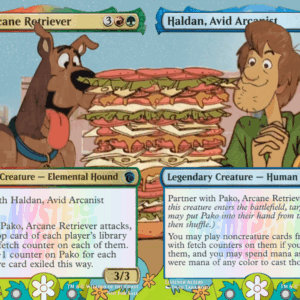If life were a screenplay, Christopher Pazan’s story would seem to have shifted unexpectedly from a feel-good sports drama to a crime thriller with a twist of financial entanglements. The former University of Illinois quarterback, who later took an oath to serve and protect as a Chicago police officer, is now entangled in a rather unsporting accusation of retail theft—a plot line that hardly suits the profile of a decorated athlete and public servant.
Pazan, at the age of 41, found himself in the shadow of a police investigation—the irony of which is not lost as he served in the Chicago Police Department since 2015. The crime scene was nothing more glamorous than the aisles of a Meijer store in Evergreen Park. On a Wednesday afternoon that promised nothing out of the ordinary, the onetime gridiron hero allegedly slipped baseball cards worth $300 into a yard waste bag, a tactic better suited for a comic strip heist than a real-life misdemeanor, and left without paying for them.
For the man once used to dodging tackles and reading defenses, the defensive line was not formed by burly linebackers this time, but rather an eagle-eyed security guard who noticed his attempts at larceny on video. Maybe it was a storied lack of stamina or simply caught off guard by his surroundings, but Pazan failed at what was clearly a play out of the ill-advised—he paid for the yard waste bag, leaving behind both the evidence of unpaid cards and, arguably, a part of his storied reputation.
While Esperanza erupted with questions and whispered jokes on the theft of goods valued at a mere $300—a number casual compared to the financial labyrinth Pazan seemed to be navigating in his personal life—Pazan was promptly stripped of his police powers, his badge momentarily tarnished pending a thorough investigation. His placement in Morgan Park’s central investigations division now seems ironic—handling major crashes and financial crimes, including cases like the one he stands accused of now partaking in.
The Chicago cop, who ventured into law enforcement in pursuit of “something more,” according to a 2015 Chicago Tribune interview, found his professional aspirations colliding with a personal crisis exacerbated by ongoing financial woes. He draws a substantial salary from the city, yet the relentless buzz of financial descent echoes from court files. His divorce case looms; a court hearing scheduled on the day of his arrest stands as another grim marker of his present predicament. Additionally, Pazan’s attorney, foreseeing a proverbial train wreck, notably failed to field any queries or offer a comment on the situation.
Pazan’s athletic prowess was once his defining trait. At Brother Rice High School, he was a beacon on the football field, earning All-American honors. While his college years at the University of Illinois added details to his athletic tapestry—some games where he cinched victories, others where the scoreboard read bleakly in opposition—his ventures as a coach and, notably, as a player for the Chicago Enforcers were chapters of commendable legacy.
Offense was not his role, and yet, amid his current legal straits, his offense is marked—retail theft, a misdemeanor charge. As Pazan faces the gavel-slamming judgement blowing in from Bridgeview on June 23, it seems his narrative is no longer guided as much by purpose or passion, but by the need to constrain spiraling finances. Slated to pay off $15,000 to JPMorgan Chase just this year, his roadmap has been dotted with unwelcome fiscal exits and settlements—from the solvency cases he sidestepped with Fifth Third Bank to the unpaid legal fees cloud shadowing over from his domestic disentanglements.
As Pazan’s financial lifeboat seemingly lists while refinancing his Beverly home, his legal team struggles to right the course, hoping to steer clear of further lawsuits aboard what remains of his economic ship.
The twist, however, is not entirely an unwritten directive from the cosmos. The city’s hiring cut-off nicks stems of financially burdened recruits, shielding the police academy against candidates swayed by corruptive inclinations or external fiscal pressures. For Pazan, having already chosen a path once at evident odds with his earlier field stardom, the dilemma is now to forge a resurrection or linger in the shadows of overshadowed potential.
As court proceedings approach, amidst pending legal windfalls and swirling commentary on his career pivot, Pazan stands at the intersection of crossroads—the story of his next play awaits writing. After all, unlike a scripted life, real decisions yield no foreseeable reruns.





